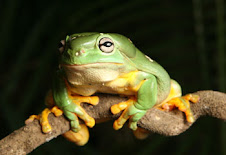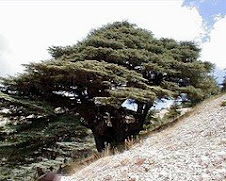
Bee pollinating a peach tree flower
The Toronto Star's gardening columnist Mark Cullen recently published an article about the importance of bees to humanity's food supply, and i found it so inspiring I have decided to share it with our readers.
Time to talk about the birds and the bees
April 01, 2011
by Mark Cullen, Special to the Star
Father to pre pubescent son: “It is time for you and me to talk about the birds and the bees.”
Son: “Sure Dad. What do you want to know?”
I am impressed by many of the things that kids learn about in school today that were never talked about in my day. Subjects like multiculturalism, character, fairness, recycling, worm composting and bullying are just a few. But ask a kid today about the importance of fostering honey bees in the neighbourhood and chances are he will give you a blank stare. In fact, most adults do not seem to understand that the future of civilization as we know it depends on a thriving culture of honey bees.
Albert Einstein said, “Mankind will not survive the honeybees’ disappearance for more than five years.”
What, you might ask, did Einstein know that the rest of us don’t? I wondered the same thing and did some digging for answers. What I came up with is surprising, alarming and hopeful all at the same time.
Bees are nature’s primary pollinators. Given that many of the plants that produce our food are pollinated by bees, we would be doing ourselves a service to pay attention to survival. Reports over the last six years indicate that their population is in steep decline throughout much of the world, including where you live. Nurturing and protecting them seems like a good idea.
Perfect and Imperfect Flowers
It is true that many plants have “perfect” flowers, complete with both male and female parts. This might lead you to think that a pollinator with wings is hardly necessary. Your tomato plants, for example, do not require pollination from bees or hummingbirds or butterflies. But any experienced gardener will tell you that the greater the population of bees in a neighbourhood, the more productive the tomatoes, peppers and potatoes (all members of the same solanaceae family). The pollinating activity of bees is beneficial even when it is not entirely necessary.
“Imperfect” flowers exist on a host of food plants, including all members of the cucurbit or squash family. They have female and male flowers, usually on the same plants though not always, which require a visit from one of nature’s flying pollinators in order to mix things up. It is the transfer of pollen from flower to flower (anther to stamen, to be exact) that fertilizes your pumpkin or cucumber and nothing does it quite as efficiently as bees. About one-third of everything that we eat has been pollinated by a bee, according to Cathy Kozma, past chair of the Toronto Beekeepers Co-operative.
Bees dig in to a nice squash flower looking for food and come out covered in pollen grains. I have heard that they buzz a lot when they are in the middle of the flower in an effort to dig as deeply as possible for what they are really looking for. Buzzing is nature’s way of removing the pollen and maximizing the exposure of it to the body and pollen pockets of the bee, so the theory goes. Like power sanding a wood-working project: buzzing makes bees one of nature’s most efficient pollinators.
Bees in Decline
The population of bees is in decline, this is a fact. In Southern Ontario we have experienced about a 30 to 40 per cent decline in bee population since 2005. In other parts of the continent, the decline is much greater, especially in arid areas.
According to Kozma, it is because of Colony Collapse Disorder (CCD). While there is no one cause for it, CCD is blamed on:
• The Varroa Destructor mite.
• The loss of natural habitat.
• Monoculture agricultural practices.
• Widespread pesticide use.
What can the average hobby gardener do to help?
Considering that the average bee performs her work (and they are all female) between a six and 10 kilometre radius of their home, there is lots that you can do. First of all I recommend that you plant plants that are attractive and useful to bees. My list includes:
• Bachelors Buttons an easy to grow annual.
• Borage, a useful herb and soil enhancer.
• Russian sage, a metre-high reliable perennial that flowers for up to eight weeks.
• Bee Balm or monarda, which is one of my favourite perennials for the sun. Grows up to one metre.
• Sunflowers. The kids will love these, too.
• Sage, a useful herb and rather fragrant.
• Oregano. Plant one and enjoy a lot. An aggressive perennial groundcover in sun.
• Basil. You want this for your tomatoes come September anyway.
In addition, Kozma recommends that we:
• Plant larger patches of flowering plants to encourage bee foraging.
• Diversify your blooming plant portfolio. Have bee-friendly plants in bloom throughout the season.
• Avoid the use of pesticides.
• Let some of your garden naturalize. This will encourage bees to nest and tunnel without being disturbed. Note: bumble bees nest in the ground; some native bees build their nests in dead raspberry canes.
• Provide a constant source of water. A hive will consume about half a litre of water a day. Put out small containers of clean water and float a small piece of wood in it to provide a landing strip and access to the water.
Want to Learn More?
Whether you want to foster bees in your neighbourhood, help out the Toronto Beekeepers Co-operative or have a hive in your own yard (for which you will need about half acre), here are some suggestions of where you can learn more:
• Toronto Beekeepers Co-operative: An active group since 2001, the TBC’s mission is to “create an opportunity for Torontonians interested in working with bees to learn about hive ecology and maintenance, honey and products of the hive, and gain hands-on beekeeping experience in a supportive environment.” More information at www.torontobees.ca.
• They have placed bee hives at Downsview Park, Evergreen Brickworks, Fairmont Royal York rooftop and most recently at the Toronto Botanical Garden.
• They are active presenters at the Evergreen Brickworks Farmers Market, Downsview’s Farming in the City and the Royal Winter Fair.
• A series of seminars are being offered at the Toronto Botanical Garden aimed at novice beekeepers. For details go to www.torontobotanicalgarden.ca.
• Read: Keeping the Bees, by Laurence Packer (2010); Sweetness and Light, by Hattie Ellis; Fruitless Fall, by Rowan Jacobsen.
“I feel privileged to have the opportunity to get up close and personal with honeybees,” says Kozma, “to teach others about their incredible world, and I see this as an easy way to make a significant contribution to making my world a better place.”
Touché. Next time I am called upon to talk to a youngster about the birds and the bees I think I will call Cathy Kozma.
I urge you to support your local beekeepers by buying their bee products. I can assure you that this is a labour of love, not a profitable venture. Sources are available at their website, TorontoBees.ca .



No comments:
Post a Comment